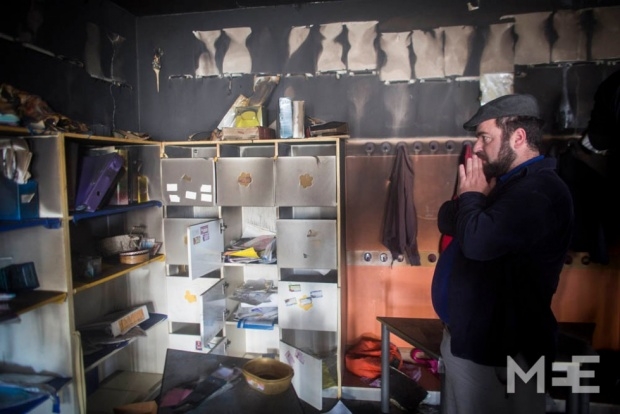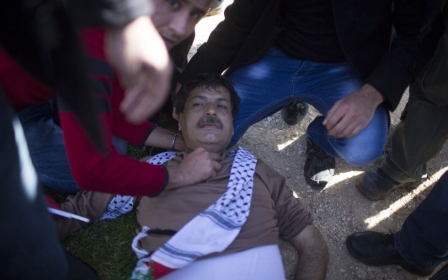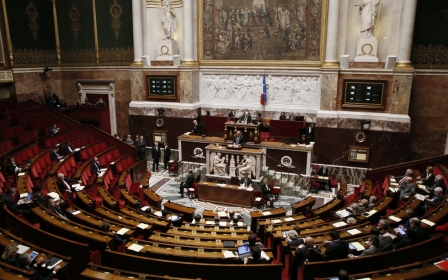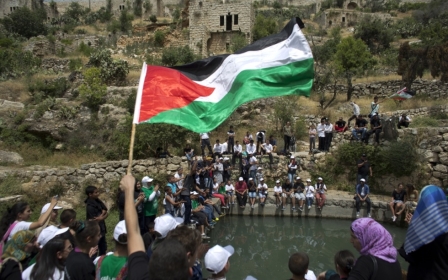Members of Israeli state-linked far right group admit torching Jewish-Arab school

Three members of a far-right Israeli group with links to state funding have admitted to torching a Jewish-Arab school in Jerusalem, according to local reports published Thursday.
Yitzah Gabay (22) and brothers Nahman (18) and Shlomo Twitto (20) of the ultra-orthodox Beitar Illit settlement have been held since 6 December, according to Ynet News. The three men reportedly told the Israel Security Agency (ISA) that they carried out the 29 November attack on the Hand-in-Hand school to highlight the “dangers of coexistence with Arabs”.
Their lawyer, described in Israeli media as a “radical rightist”, said confessions had been coerced and accused the ISA of mistreating the men.
“They showed signs of serious abuse,” Itamar Ben Gvir told Ynet after meeting his clients. “After five straight days of interrogation they showed signs of serious abuse: from sleep deprivation to mental stress […] they also claimed that one of their interrogators said they would rip them a new asshole.”
“In such a state they would have admitted to anything.”
The Hand-in-Hand school – where Jewish and Palestinian children are taught together – is a rare symbol of coexistence in Jerusalem, a city fraught by division between its Israeli and Palestinian residents.
First-grade classrooms were burnt out in November’s arson attack and graffiti that read “Death to Arabs” and “There’s no coexistence with cancer” were scrawled on the walls. The incident sparked a protest in support of the school and saw Israeli President Reuven Rivlin meet with the students to express his solidarity.
The three men who have reportedly admitted responsibility for torching the school are all members of right-wing group Lehava, which opposes marriage between Jewish women and non-Jewish men.
Lehava leaders responded to the arrest of their members by defending the group’s activities.
“The Lehava organisation works day and night to save Israeli women from assimilation,” Bentzi Gopstein, the group’s chairman, told Israel National News. “Lehava only works by legal means.”
“The ISA is trying, for years, to implicate Lehava in criminal actions and to sabotage the sacred task of saving the women of Israel. We will continue to act legally to assist the women of Israel.”
The ISA said Lehava members follow the teachings of the late Rabbi Meir Kahane – a radical right-wing activist who advocated for the removal of all Palestinians from Israel and called for the country to be Jewish-run theocracy, and whose Kach party was designated a terrorist group by Israel and the US.
Despite Lehava’s Gopstein claiming they have been unfairly targeted by the ISA, a 2011 Haaretz investigation made links between his group and the Israeli state. The report revealed Lehava is not a registered non-profit organisation (NPO) in Israel but “its leading and prominent activists are connected to an NPO called Hemla (Mercy), which receives funding from the state.”
Among Hemla’s stated objectives is an aim to “help girls from broken homes who are in danger of forced conversion” as well as providing “assistance to the hilltop people in Judea and Samaria,” a reference to those living in illegal settlements in the occupied West Bank.
Since 2005 the organisation has received between 600,000 NIS ($152,950) and 700,000 ($178,470) – around half its yearly budget – from Israel’s Social Affairs Ministry.
In addition to being the chairman of Lehava, Gopstein is the public relations director of Hemla and receives a salary of 40,000 NIS ($10,200) per year from the organisation, according to Haaretz.
The Social Affairs Ministry said it funds Hemla to rehabilitate “girls at risk” but did not answer questions about providing financial aid to organisations that have sought to stop relationships between Jewish women and Palestinian men.
The court case against the three Lehava members accused of attacking the Hand-in-Hand school is ongoing.
Middle East Eye propose une couverture et une analyse indépendantes et incomparables du Moyen-Orient, de l’Afrique du Nord et d’autres régions du monde. Pour en savoir plus sur la reprise de ce contenu et les frais qui s’appliquent, veuillez remplir ce formulaire [en anglais]. Pour en savoir plus sur MEE, cliquez ici [en anglais].




